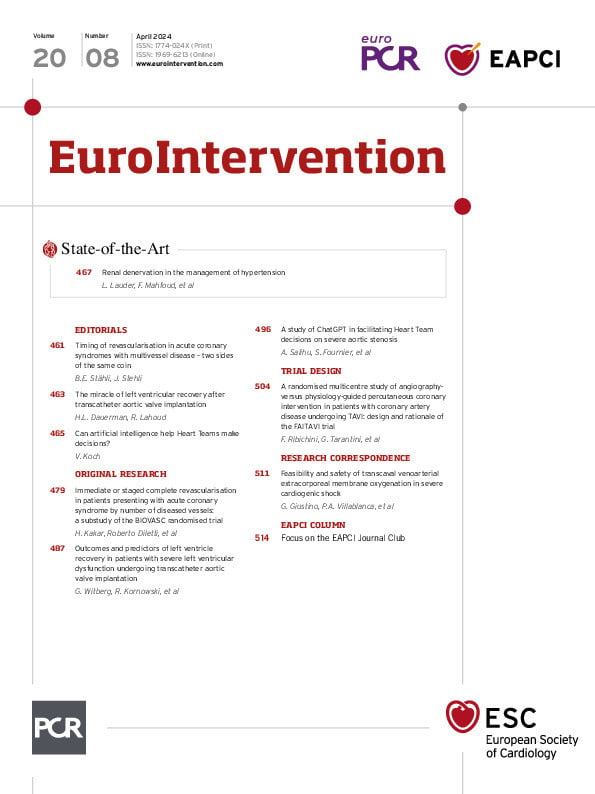Everywhere we turn we are confronted by an ongoing debate about the dangers – and advantages – of artificial intelligence. In the last issue, we spoke about evidence, and here, one of our articles looks at artificial intelligence and the role it could play in one aspect of our clinical lives. There is no reason to believe that hard clinical data and artificial intelligence are necessarily opposed... but we still need to be vigilant. The jury is out, and the evidence needs to be collected – what do you think?
Renal denervation in the management of hypertension
Lucas Lauder, Felix Mahfoud and colleagues present a state-of-the-art review on renal denervation in the management of hypertension, examining the rationale, evidence and current devices available today for renal denervation. They also look at the role of renal denervation in current guidelines and clinical practice, offering their recommendations for procedural safety.
See page e467
Immediate, complete revascularisation in multivessel disease acute coronary syndrome
Hala Kakar, Roberto Diletti and colleagues compare immediate and staged complete revascularisations in acute coronary syndrome patients, stratified by the number of diseased vessels. As immediate revascularisation was found to be safe in both patients with two- and three-vessel disease, an immediate approach may be an alternative to the staged approach for patients with extensive and complex vessel disease.
See page e479
Left ventricular recovery following TAVI
Available data on how left ventricular recovery after TAVI impacts mortality in patients with both severe aortic stenosis and severe left ventricular dysfunction is, for the moment, limited. In this article, Guy Witberg, Ran Kornowski and colleagues conclude that, though larger-scale studies are still needed, assessing the likelihood of left ventricular recovery is important in predicting TAVI outcome in these patients
See page e487
AI-assisted decision-making for severe aortic stenosis
Adil Salihu, Stephane Fournier and colleagues examine the ways in which large language models, and particularly ChatGPT, could be integrated into the Heart Team’s decision-making process. In this study, ChatGPT agreed with the Heart Team’s decisions 77% of the time, with variations according to treatment modality.
See page e496

